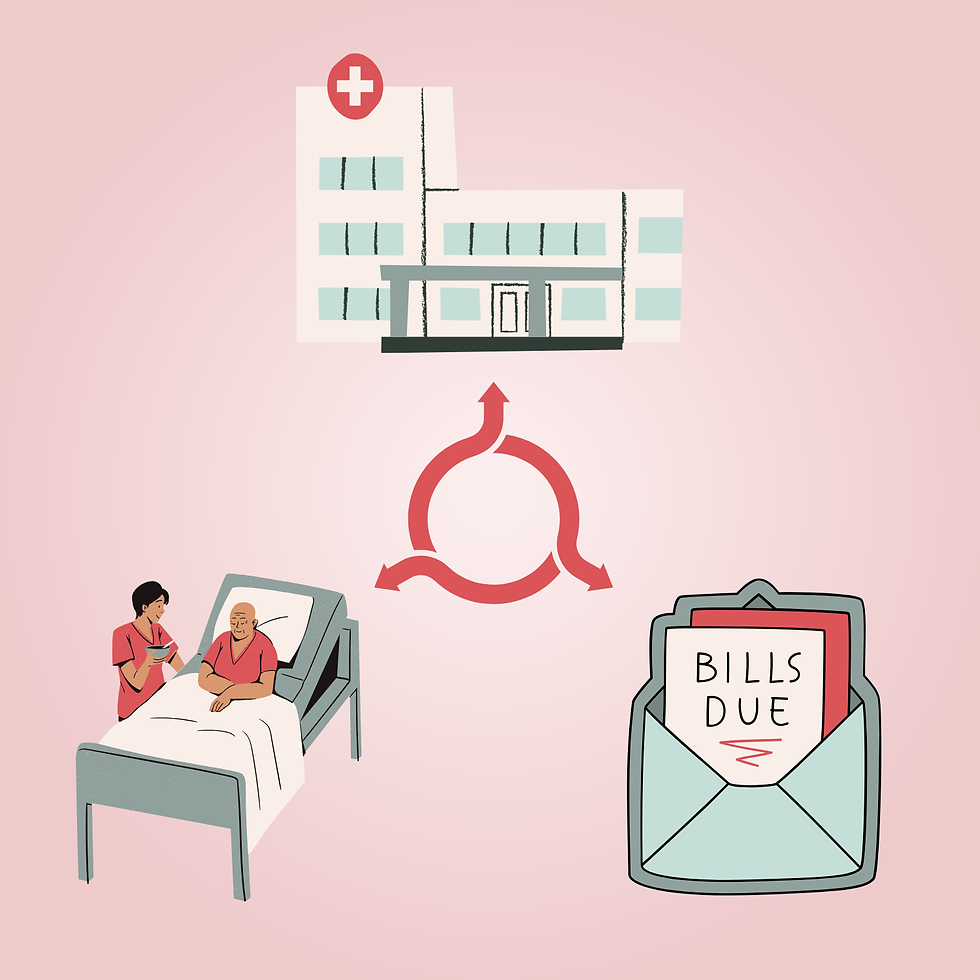Not Just Postpartum Depression: Breaking Down Barriers to Perinatal Mental Health Care
- Simone Nabors
- Mar 7, 2023
- 3 min read
It is estimated that 1 in 7 birthing people will develop postpartum depression (PPD). While recognizing and treating PPD is important in perinatal mental health care, it isn’t the only diagnosis that needs to be addressed. There are many conditions that may affect people during and around pregnancy including depression, anxiety disorders, and psychosis. In recent years, discussions around PPD have become more common, but major barriers still exist for pregnant people seeking mental health care. To address these barriers, we must reduce the stigma, adequately train providers, and make mental health care more accessible.

On the patient side, it’s important to address and mitigate the stigma that exists around mental health, specifically during pregnancy. The common narrative in our culture holds that pregnancy should be the best time of a person’s life. As a result, anyone struggling may feel as if they are alone, which often prevents them from seeking help. For those being medically treated for psychiatric conditions prior to pregnancy, there are often social pressures to stop these medications for the sake of their future child. The American Medial Association recognizes this as a significant ethical and clinical dilemma, but that dilemma spreads into social spheres as well. Many expecting parents and those around them overestimate the teratenogenic risk associated with medical treatment of psychiatric disorders. Unclear social beliefs and advice can lead to people feeling even more isolated during the conception process and pregnancy itself.
From the provider perspective, there needs to be more education on treating mental health conditions during pregnancy. As of 2022, there were only 15 perinatal psychiatry fellowships in the US to provide formal training for psychiatrists looking to specialize in this patient population. That said, having a baseline understanding of recognizing and treating mental health conditions during pregnancy is needed for all providers caring for pregnant people. We often talk about the fetal risks of exposure to psychiatric medications, but research shows that this risk ought to be balanced with the risks of exposure to untreated psychiatric conditions themselves. Those who abruptly halt treatment are less likely to receive proper prenatal care, more likely to use tobacco and alcohol, and are at higher risk for causing harm to themselves and their child. With the stigma that already exists around psychiatric medications during pregnancy, it is even more important for providers to stay informed of current treatment recommendations and provide this information to their patients.
As we work to decrease the stigma and enhance provider education, it is also important to make sure that mental health care is accessible. This may look like increasing the number of providers, mitigating cost barriers, or making sure that care environments are affirming to all patients. It is currently estimated that roughly 160 million Americans live in mental health professional shortage areas. Psychiatry as a field is expected to have shortages of between 14,000 and 30,000 psychiatrists by 2025, and these shortages spread into other mental health professions as well. Financially, many people cannot afford to pay for mental health care out-of-pocket, and even those with insurance coverage may have difficulty finding providers that take their insurance. As always, the language that we use is important. Replacing phrases like “pregnant women” and “moms” with “pregnant people” and “parents” can go a long way toward making these spaces more affirming for anyone seeking care. Culturally competent care is especially important in mental health. Recent endeavors like the Perinatal Mental Health Alliance for People of Color have worked to address these issues by increasing patients’ access to care and supporting providers of color looking to expand their knowledge of perinatal mental health. Though this program and others like it have worked to close the gap between pregnant people and providers of color, there is more to be done to ensure that all patients can receive culturally appropriate and affirming care.
With 1 in 5 pregnant people likely to need mental health support during the course of their pregnancy, mental health conditions represent the most common complication of pregnancy. The medical community has an ethical duty to provide care to these individuals, but it doesn’t start or end there. We, in the general public, have a responsibility to decrease the stigma around mental health, specifically during pregnancy.
Talk to the people around you, listen to them, and help them find support if you can. The conversation starts with us and can start today.
If you or someone you know is in crisis, please see the resources below:
National Maternal Mental Health Hotline:
https://mchb.hrsa.gov/national-maternal-mental-health-hotline
Call or text: 1-833-943-5746
988 Suicide & Crisis Lifelines:
Call or text: 988
Edited by: Elissa Gorman
Graphic Designed by: Olivia Fu



Comments